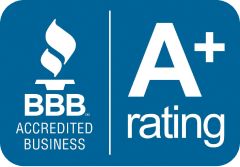
Medicare Part B helps eligible Americans pay for doctor visits, lab tests, preventative treatments, and other healthcare costs. However, this coverage isn’t free, and not everyone needs it. Those who don’t need Part B can opt out, but it’s not an easy process.
The Centers for Medicare and Medicaid Services (CMS) does not make disenrolling from this plan simple, and you will need to speak with a representative. If you cancel Part B, it may affect your ability to afford coverage in the future, so make sure you read the entire article before proceeding.
Download and print Form CMS 1763 to start the Part B cancellation process but don’t fill it out yet. You’ll need to fill out the form during a phone or in-person interview with a Social Security Administration (SSA) agent.
All Social Security Administration offices are now closed because of the COVID-19 outbreak. The Social Security Administration is still taking calls, and its website offers a variety of services. Check out the most recent COVID-19 updates.
By calling the SSA, you can arrange for an in-person or over-the-phone interview. Use the Social Security Office Locator to discover a location near you if you prefer an in-person interview. Fill out Form CMS 1763 as suggested by the representative during your interview. If you already have a Medicare card, you must return it at your in-person interview or mail it after your phone interview.
What occurs next is determined by the reason you’ve decided to cancel your Part B coverage.
Find Medicare Plans in 3 Easy Steps
We can help find the right Medicare plans for you today
Canceling Part B because you were automatically enrolled

When they become eligible for Medicare, some persons are automatically enrolled in Part B if they are receiving Social Security or Railroad Retirement Board (RRB) benefits. If that’s the case, even if you haven’t applied for benefits, your Medicare card is likely to appear in the mail.
If you don’t opt-out and don’t want this coverage, you’ll be responsible for Part B premiums, which may be deducted directly from your Social Security or RRB checks. However, if you opt-out of Part B without creditable coverage—that is, employer-sponsored health insurance from your present employment that is as good as or better than Medicare—you may suffer late-enrollment penalties (LEPs) later.
Canceling Part B because you got a job with insurance

Congratulations if you’ve had Part B for a time but no longer require it since you’ve returned to work and gained access to employer-sponsored health insurance. However, before you remove Part B, make sure you know whether your employer’s coverage is primary or supplementary to Medicare.
Prior to Medicare, a primary payer health plan pays. That means your employer-provided health plan will cover its part of your healthcare costs first, and Medicare will cover the rest if there’s anything left over.
A secondary payer health plan, on the other hand, only covers costs once Medicare has paid its portion.
It’s fantastic if your company’s health plan is a primary payer. If you like, you can opt-out of your Part B coverage. The extra coverage provided by Part B rates may not be worth it. However, if you have secondary-payer insurance through your employer, it’s usually best to preserve Part B, or you’ll be stuck paying Medicare’s half of your medical bills.
Find out if your employer-sponsored plan is primary or secondary to Medicare by speaking with your human resources department at work. Secondary payer plans are typically used by firms with fewer than 20 employees, whereas primary payer plans are used by bigger businesses.
Canceling Part B because you can’t afford the premiums

Use caution if you don’t have a job with good health insurance but still don’t want to pay Part B premiums. The longer you go without health insurance that’s as good as or better than Medicare, the more late-enrollment penalties you’ll accrue. If you later decide to re-enroll in Part B, these fines may make your premiums (the amount you pay for insurance) even more expensive.
If you can't afford your Part B premiums, consider other options before canceling your coverage.

If you live in a low-income home or have little assets, you can qualify for Medicaid coverage. Medicare also has a number of savings initiatives to assist qualified persons with their Medicare costs.
How Medicare Advantage can save you money on your Part B premiums

You still have options if you don’t qualify for the above programs. Consider a Medicare Advantage plan that includes a Part B premium rebate. This is how it works:
A Medicare Advantage plan provides coverage that is equal to or better than Part A (hospital insurance) and Part B (medical insurance) (medical insurance). Most subscribers pay a premium for their Medicare Advantage plan in addition to the cost of Part B to receive this coverage.
However, to compete with other insurance firms, Medicare Advantage carriers in some places, usually large cities, offer $0 policies. A few even go so far as to give enrollees a discount on their Part B costs. If you join in one of these plans, you may be able to save money on your monthly Part B premium while still receiving additional benefits such as prescription drugs, dental, vision, and hearing care.
Although these plans aren’t accessible in every location, even the most basic Medicare Advantage plan can help you save money. You won’t have to pay an extra premium for prescription medication coverage or dental insurance with most plans, so you’ll have more money to meet the Part B cost.
Give us a call to see if a Medicare Advantage plan could save you money.
Should you disenroll from Medicare Part B?

Disenrolling from Medicare Part B is a time-consuming process that necessitates an in-person or phone interview. However, this is done on purpose. Part B cancellation could have a severe impact on your cash (in the form of late-enrollment fines) as well as your health (in the form of a gap in coverage).
Consequences of canceling Part B

If you have a coverage gap, the Medicare program may impose late-enrollment penalties on your Part B rates if you re-enroll later. Working with your human resources department to ensure that your company’s insurance is creditable (meaning that it is as good as or better than Medicare Part B) will help you avoid this problem. During your Part B cancellation interview, you may be asked to present proof of creditable coverage.
If you avoid going to the doctor because you don’t have health insurance, a gap in coverage could be harmful to your health. You may also be forced to forego other types of insurance. You won’t be able to enroll in other portions of Medicare if you don’t have Part B, such as Part D prescription medication coverage, Medicare Supplement (Medigap), or Medicare Advantage if you don’t have Part B. These gaps will persist until you later re-enroll in Part B.

Proceed with caution
If you do decide to terminate your Part B coverage, make sure you take the necessary precautions to avoid the repercussions listed above.
If you’re considering skipping Part B because you can’t afford the premiums, keep in mind that there are other ways to save money on health care. Instead of abandoning Part B, consider adding a Medicare Advantage or Medigap coverage. To learn more about these options for Part B dis-enrollment, give us a call.

FAQ
Can I re-enroll in Part B later?
You can re-enroll in Part B if you change your mind after disenrolling, but you may face late-enrollment fines if you don’t have other acceptable coverage in place.

Can I re-enroll online?
You may not be able to re-enroll in Part B online if you have Part A but do not want to keep Part B. You’ll have to download, print, and sign a few pieces of paperwork instead. In Part B, you’ll learn more about re-enrolling.

How can I avoid late-enrollment penalties?
To avoid late-enrollment fines, you may need to verify that you had employer-sponsored coverage. You’ll be awarded a special enrollment period (SEP) if you’ve confirmed you’ve had coverage, allowing you to re-enroll in Part B immediately away.
You may be eligible to add a Medicare Part D prescription medication coverage, Medicare Advantage, or Medigap plan during your SEP.
Find Medicare Plans in 3 Easy Steps
We can help find the right Medicare plans for you today
FAQs
Can I disenroll from Medicare Part B?
You can voluntarily end your Medicare Part B coverage (medical insurance). This is a significant decision. The Social Security Administration requires you to submit Form CMS-1763 (PDF, Adobe Reader required) (SSA). This form can be obtained by visiting or calling the Social Security Administration (1-800-772-1213).
What happens when you cancel Medicare Part B?
However, if you opt-out of Part B without having creditable coverage—that is, employer-sponsored health insurance from your present work that is as good as or better than Medicare—you may be subject to late-enrollment penalties (LEPs) in the future.
Can I cancel Part B Medicare if I go back to work?
If you return to work and can find adequate primary coverage via your employer, you can quit Medicare and re-enroll without penalty.
How do I cancel my Medicare plan?
- Please contact us at 1-800-MEDICARE (1-800-633-4227). 1-877-486-2048 (TTY).
- Send or fax a signed written notification to the plan stating your want to be removed from coverage.
- If the plan allows it, submit a request to them online.
Call the plan and request that a disenrollment notice is sent to you.
Can you leave Medicare?
You can leave your Medicare, Medicare Advantage, Medigap, and/or Drug coverage, return to a plan supplied by your employer, and then return to Medicare, Medigap, and Drug coverage with no penalties or waiting periods, as long as you meet medical criteria.
Where do I send my CMS Form 1763?
You must send this form to the Social Security Administration, or call them for help at 1-800-772-1213.
How long does it take to get Medicare Part B after?
From the time we receive your application, most Medicare provider number applications take up to 15 calendar days to process. Some applications may take longer if the Department of Health needs to review them. We evaluate your application to see if you qualify for Medicare benefits.
How do I fill out CMS 1763?
- Make a note of the enrollee’s name…
- Please provide your Medicare number.
- Select the type of coverage you want to cancel.
- Indicate when your hospital or medical insurance coverage will expire.
- Give the reasons for the dismissal…
- Make sure the paperwork is signed and that the request is complete.
What parts of Medicare are mandatory?
Medicare is divided into four sections: A, B, C, and D. Part A is a recurring payment that covers medical treatment in a facility. If you do not have additional healthcare coverage, such as through a job or a spouse, Part B is automatically triggered.
How do I opt out of Medicare Part A?
Fill out CMS form 1763 and return it to your local Social Security Administration Office to disenroll from Medicare Part A. Remember that dropping out of Part A means you’ll have to pay back any money you received from Social Security, as well as any Medicare benefits you received.







